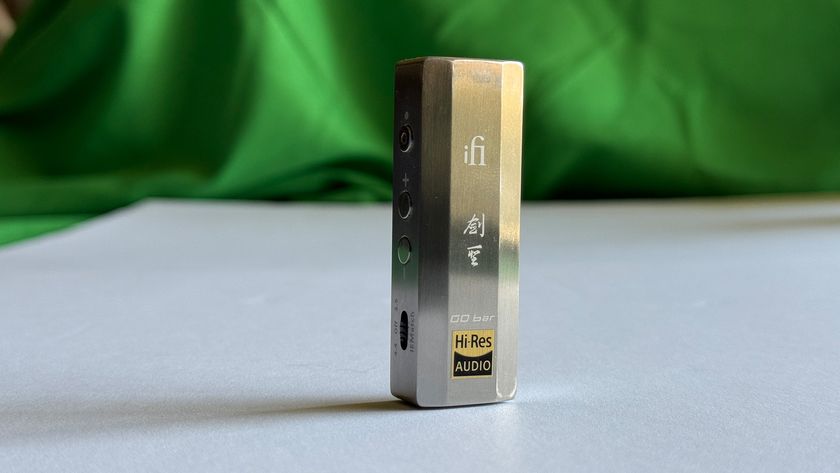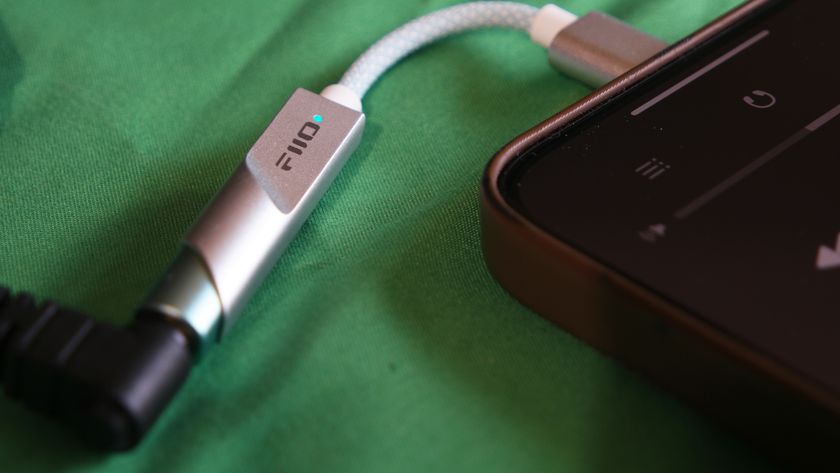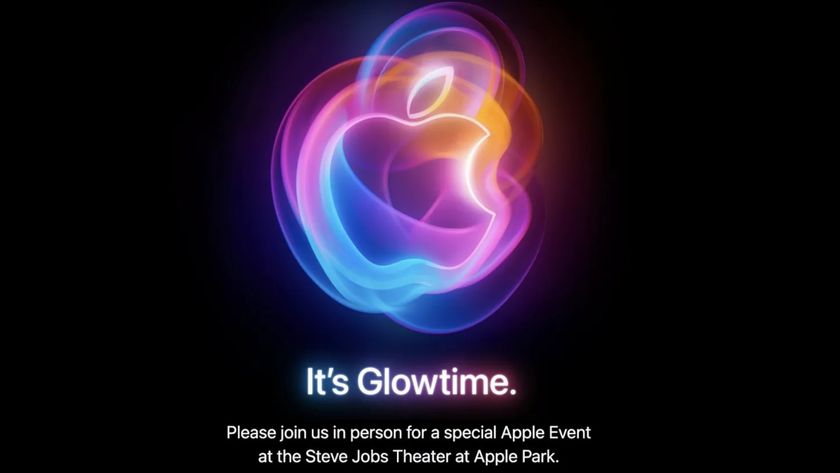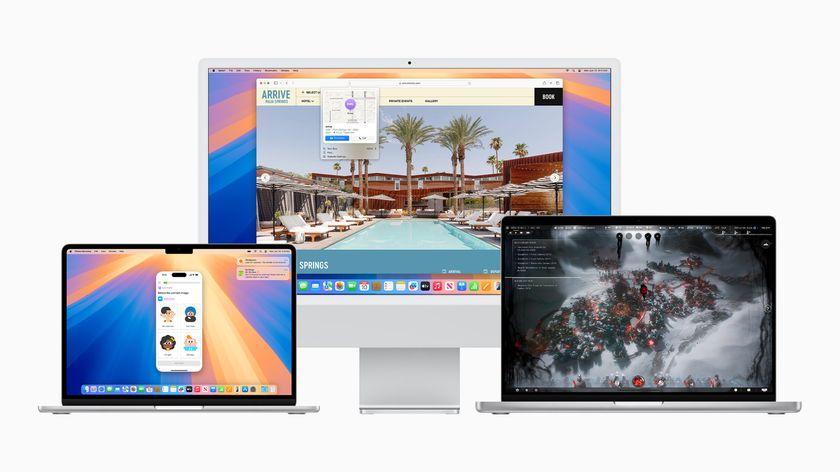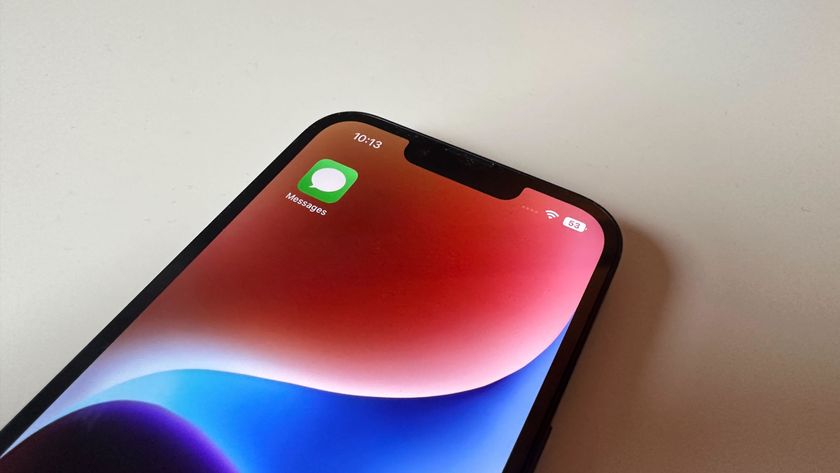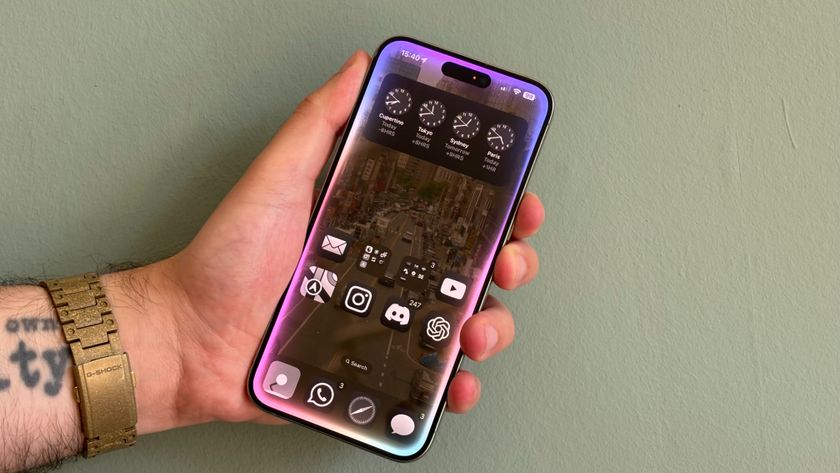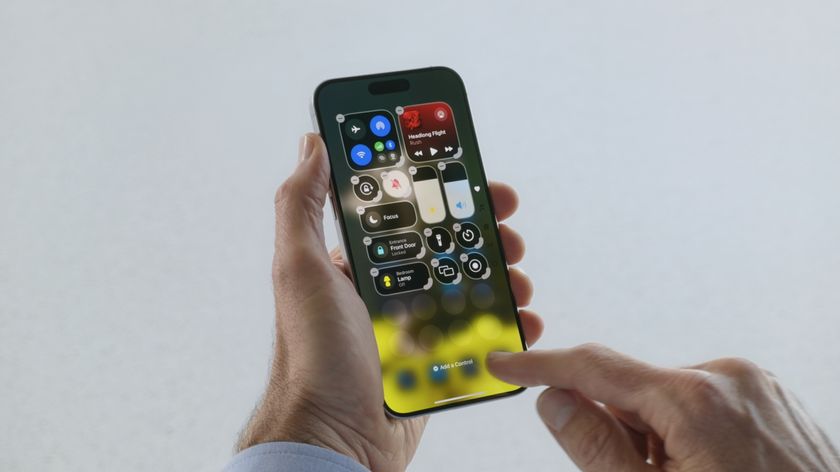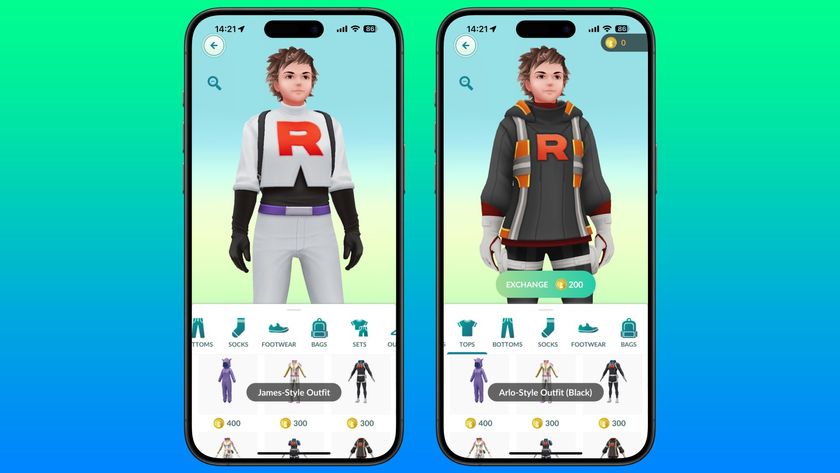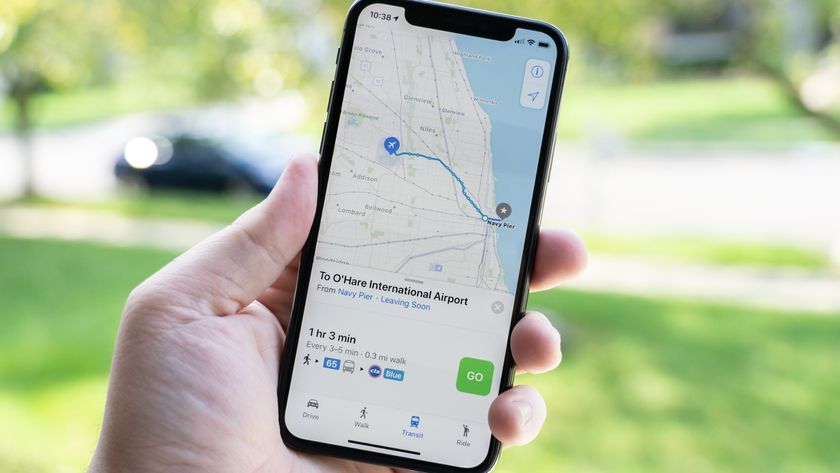How to fix the proximity sensor cable on an iPhone 3GS or iPhone 3G
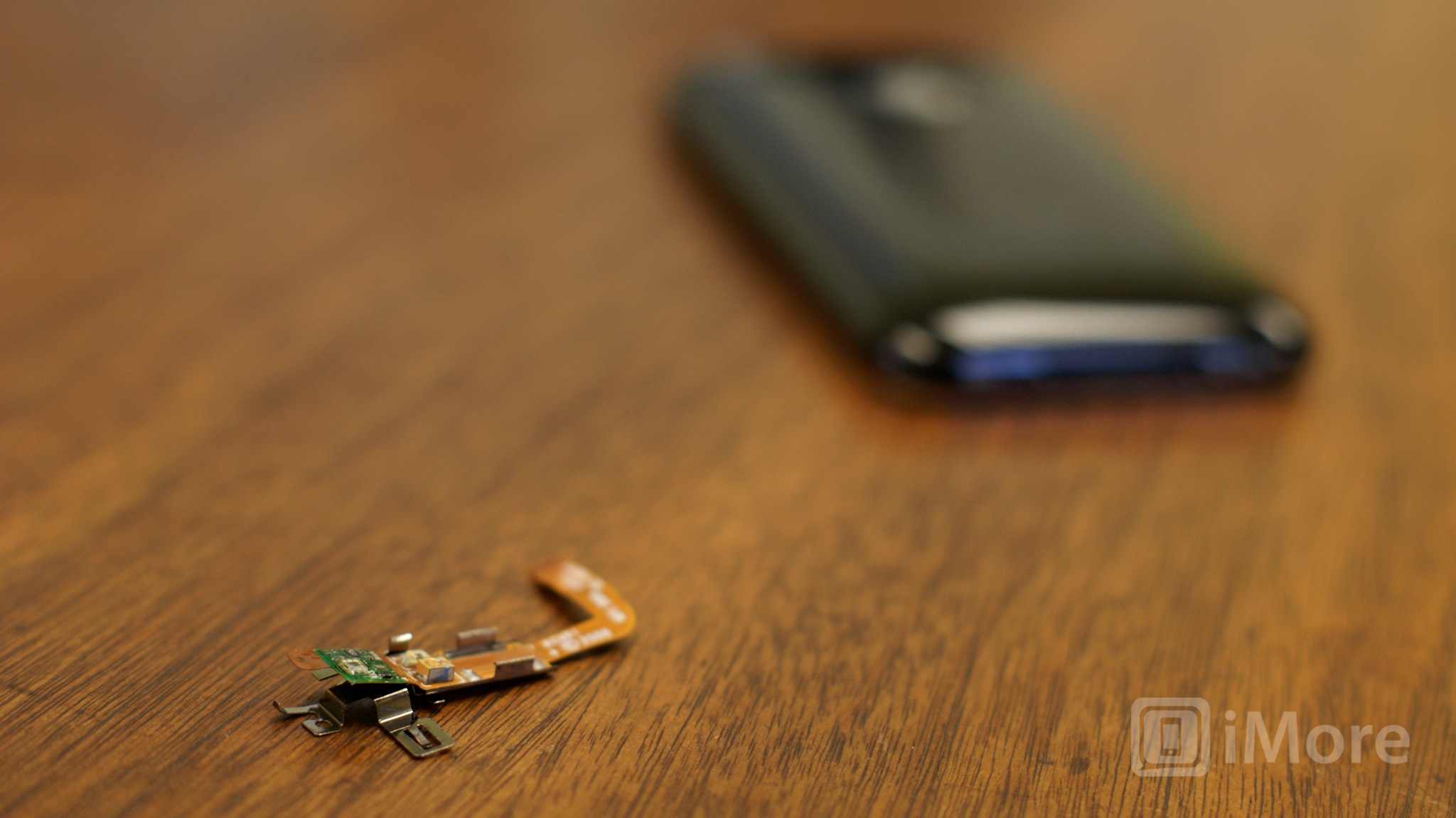
If you're having issues with the proximity sensor, ambient light sensor, or earpiece speaker on your iPhone 3GS or iPhone 3G, the proximity sensor cable may just be the actual culprit. Luckily, a proximity sensor cable is inexpensive and relatively easy to replace.
Symptoms
- Your earpiece speaker cuts in and out or you can't hear unless you have speakerphone activated (this can also be caused by a broken earpiece speaker)
- Your ambient light sensor doesn't work - in other words, even if you have auto-brightness enabled your iPhone still isn't adjusting by itself given different lighting scenarios
- Your proximity sensor isn't working - this is the sensor that turns your screen off when in range of your face so you don't hit buttons while on a call
Disclaimer: As with any repair, iMore nor PXLFIX can be held responsible for any damage you may do to your device. It’s also worth considering that opening up your device to perform any repair or modification can and will void your Apple warranty. If you don’t feel comfortable opening your device, don’t. Use extreme care and caution when performing a repair on any device.
What you need for a DIY proximity sensor cable replacement
PXLFIX recommends using only quality and genuine parts from a reputable supplier like eTech Parts. They have quality parts, tools, and much more for all your repair needs.
- A sad iPhone 3G or iPhone 3GS
- A replacement proximity sensor cable - iPhone 3G & 3GS prox sensor cable - As a side note, some parts suppliers may refer to this part as an induction flex cable. So if you can't find a proximity sensor cable, try looking for an induction flex cable. They are one in the same.
- A #00 Phillips screwdriver
- A suction cup
- A plastic pry tool or spudger
This repair will be performed in exactly the same manner regardless whether you have an iPhone 3G or iPhone 3GS.
Power off your iPhone
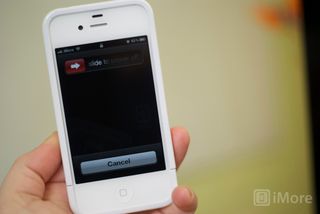
Before performing any repair or removing any screws or parts, always power off your device.
Remove the dock connector screws
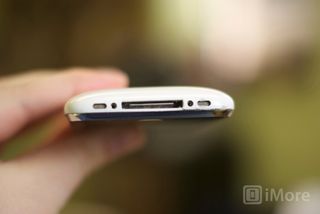
Using your #00 Phillips screwdriver, remove the 2 screws located on each side of the dock connector.
Remove the digitizer & LCD assembly
This part can be a bit tricky so please do this with extreme care so you don't tear any cables during the process.
Master your iPhone in minutes
iMore offers spot-on advice and guidance from our team of experts, with decades of Apple device experience to lean on. Learn more with iMore!
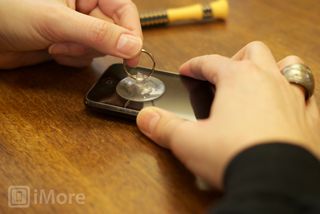
The easiest way to remove the digitizer assembly is by using a suction cup.
- Position the suction cup on the screen directly above the home button.
- Using your other hand, hold down the frame while gently pulling up on the suction cup.
- The goal is to get the bottom of the digitizer loose. Do not pull directly up. There are 3 cables attached in the top right of your iPhone. You do not want to tear these. Just pull up until the bottom of the assembly pops out.
- After you have the bottom up you can remove the suction cup.
Remove the cables that attach the digitizer assembly to the logic board:
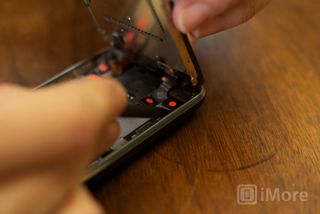
Once you have the bottom of your digitizer assembly popped up we can remove the cables attaching it to the logic board.
- Gently lift up your digitizer enough to have a clear view of the 3 cables in the top right of your iPhone.
- With your plastic spudger or pry tool, you'll need to pry up the first two cables that attach the digitizer and LCD. They should be labeled with orange stickers numbered 1 and 2. Simply pop them off the logic board gently.
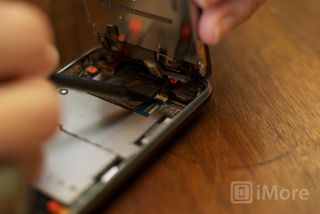
- Underneath these cables you'll see one other labeled as cable 3. This one is a bit trickier as it is clipped down. You'll need to gently pop up the clasp holding it into the fastener. It is a tiny white clip. Simply pop it upwards and the number 3 cable should then slide right out.
- Remove the digitizer & LCD assembly.
At this point you can set the body of your iPhone aside and flip over the front screen assembly, which is what we'll be removing and replacing the proximity sensor cable on.
Remove the LCD assembly
This step is optional and not required but I recommend it. Removing the LCD will allow you to get a better view of the induction flex you'll need to remove. It'll also give you more room to maneuver your pry tool around. If you don't remove the LCD, make sure you don't apply any pressure to it when removing the induction flex and speaker assembly.
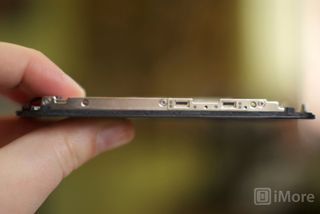
- There are 6 screws holding the LCD in place. They are all the same size. Three on the left side of the frame, 2 on the right side of the frame, and 1 on the top right holding down the induction flex. Remove all 6 screws with your #00 Phillips screwdriver and set them aside.
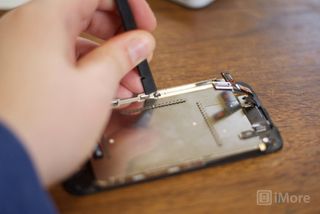
- Next use your pry tool to slowly work the LCD out of the old assembly on the left and right sides. It should come out fairly easily. Just take special care not to scratch it while removing it. The LCD and back plate will remove in one piece as they are glued together.
Remove the bad proximity sensor cable
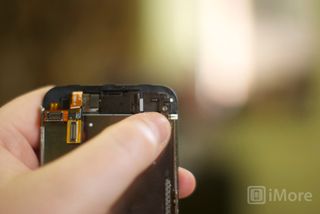
We will need to remove the proximity sensor cable from the front assembly in order to put in the new one.
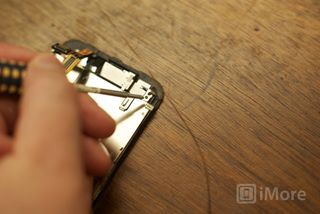
- Use your #00 screwdriver to remove the one screw in the top right that's holding down the flex cable and your LCD. (If you removed your LCD, you will have already removed this screw.)
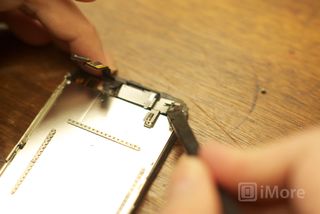
- Next, use your pry tool or spudger tool to gently pry the cable on the right side. You don't want to try and pry it all the way off as it is still clipped on at the top. We just want to loosen it.
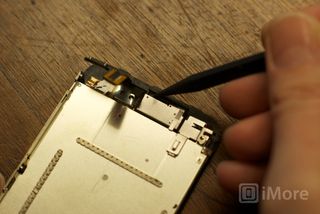
- Next take the pointed end of your spudger (or you can use another plastic pointed object if you don't have a spudger) and pry up the 2 clips at the top holding the cable down. It should now easily lift from the assembly to reveal your earpiece speaker.
Replace the proximity sensor cable
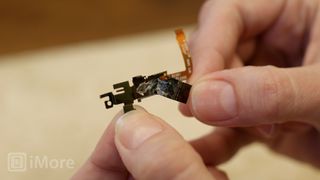
You'll notice that the proximity sensor cable is attached with some adhesive to the metal clip that holds it in place. To remove it, gently peel the cable off the metal clip. You'll notice dotted lines that are printed onto the cable to assist you in lining it up correctly when placing the new one onto the clip. If you need to, you may apply more adhesive. Your replacement cable may have come with adhesive pre-installed already.
Reassemble your iPhone
Once you've replaced the proximity sensor cable, you'll just need to reassemble your iPhone by following these directions in exact reverse order. You can also watch the video above as it contains re-assembly instructions as well. As a side tip, take care to snap in the induction flex cable carefully. There's a clip towards the bottom you'll need to make sure snaps in all the way or you'll have issues putting the assembly back together.
And... done!
That's it! You probably saved quite a bit compared to what it would cost to buy a new iPhone. While the cable name may sound scary, the process to fix it wasn't that bad, now was it?
If you do run into problems, make sure to check out our DIY and mod forums below. If you don't feel comfortable opening your device on your own, you can always contact PXLFIX about mail-in repairs as well.
Additional resources:
iMore senior editor from 2011 to 2015.


